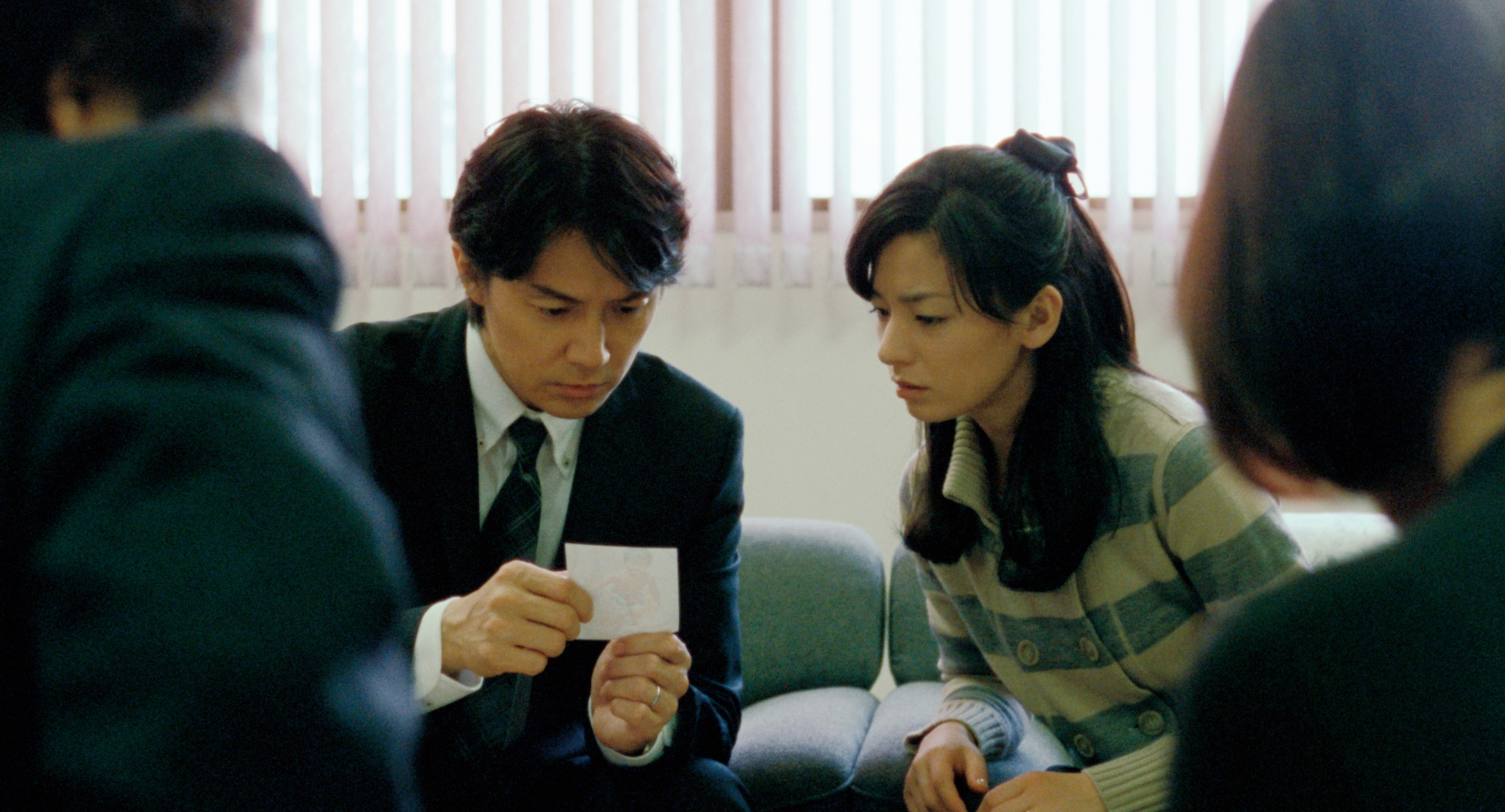Like Father, Like Son
Opens Fri., Feb. 14 at Guild 45th. Not rated. 121 minutes.
Tabloid story, meditative treatment—director Hirokazu Kore-eda has been in this territory before. His masterpiece, Nobody Knows (2004), was based on a news story of children left to fend for themselves when their mother simply abandoned them in their Tokyo apartment. His latest film is also inspired by true accounts of a parental nightmare: Two couples learn that their 6-year-old sons, born on the same day in the same country hospital, were switched at birth. Brought together by the news, the mortified parents must now work out what to do about a very complicated future.
Like Father, Like Son does not spread its time over these characters equally. The focus is on Ryota (Japanese singer/actor Masaharu Fukuyama), a hard-driving architect whose long workday leaves him little time with his wife Midori (Machiko Ono) or their beloved son Keita. The other couple (Lily Franky and Yoko Maki) get less screen time, as their cheerfully messy, mildly trashy small-town existence is contrasted—a little too neatly—with the sterile high-rise apartment of their Tokyo counterparts. The strange thing is, although we see early on what could be improved about Ryota’s way of life and expect the film to eventually come around to that, there’s nothing reassuring about the movie. The situation is so awful, the possible results so equally unsatisfactory, that even the somewhat straightforward lessons that Ryota needs to learn are given tense, uncertain life.
We generally see the boys through their parents’ perspectives, the opposite of the approach Kore-eda took in Nobody Knows; much of what was exciting about that film was the privileged position of staying at kid level, not relying on an older, taller point of view. The situation was heartbreaking, but strangely enchanting. Like Father, Like Son feels unbalanced, because you can’t help but wonder what’s going on when the boys are on their own, traveling between houses as the families get to know each other. That could easily be another feature film—and I couldn’t shake the feeling it might be more compelling than tracing the arc of Ryota’s evolution. For that matter, from the one glimpse we get of Ryota’s own father, yet another movie might be made of the original fraught relationship among those two and the stepmother Ryota still treats with resentment. These imaginary films could also be called Like Father, Like Son—which gives a measure of where Kore-eda’s sad focus is in this uneven, anxious picture.
film@seattleweekly.com







